QuickBooks is a popular accounting software for small businesses. It excels in bookkeeping, invoicing, inventory tracking, sales tax management, and more. QuickBooks dominates the market, with over 6.5 million users worldwide.
Despite its popularity,
In this article, we will explore the best QuickBooks alternatives based on key & core features, ideal target business size, and cost. We will also discuss how each alternative differs from QuickBooks and share the pros and cons.
- Zoho Books – Best for Zoho Integration
- FreshBooks – Best for Freelancers and Self-Employed
- Xero – Best for Growing Businesses
- Quicken – Best for Personal Finance
- NetSuite – Best for Large Enterprise
- Sage 50 – Best for Small Businesses
- Wave Accounting – Free Plan is Sufficient for Beginners
- Kashoo – Best to Automate Accounting Tasks
- Show less
QuickBooks Alternatives Review Methodology
At Geekflare, we ensure our reviews are thorough and unbiased. For our assessment of QuickBooks alternatives, we conducted hands-on testing with both free and paid plans. We evaluated core accounting features, ease of use, pricing, and customer feedback. Our experts gathered data from official sources and user reviews to provide comprehensive insights and practical recommendations, empowering you to make informed decisions for your business.

Zoho Books
Best for Zoho Integration
- Ideal forSmall and Medium Businesses
- Core FunctionalityInvoicing, Expenses, Inventory Management
- Ease of UseUser-Friendly
About Zoho Books
Zoho Books supports core accounting tasks such as creating and sending invoices, tracking expenses, and managing accounts. It’s particularly suited for small businesses and freelancers looking for a cost-effective and user-friendly solution.
The software offers a free plan for up to two users and provides functionalities like invoicing, online payments, recurring invoices, payment reminders, bank reconciliation, and more.
Zoho Books is not the best solution for businesses requiring advanced features like complex tax calculations, but its scalability and integration options allow it to grow with your business, making it a versatile option.
How Zoho Books Is Different From QuickBooks
Integration: Zoho Books is known for its deep integration with other Zoho applications, making it suitable for businesses already using other Zoho products. QuickBooks, on the other hand, doesn’t have an extensive suite of apps, but it offers a decent marketplace of third-party integrations.
User Limit: Zoho Books’ higher-level plans allow for more users and invoices, providing flexibility for growing businesses. QuickBooks’ user limits vary by plan, and adding more users often incurs additional costs.
Customization and Automation: Zoho Books offers up to 18 customizable invoice templates and advanced automation features such as webhooks, workflow rules, and custom functions. These capabilities enable businesses to automate repetitive tasks and boost efficiency. QuickBooks, on the other hand, has fewer customization options and may not support as broad a range of automation features.
Learn more about Zoho Books in our review.
Zoho Books Features
Automate invoices with custom branding, multi-currency, and multilingual support.
Manage vendor bills with conversions, full/partial payments, and credits.
Track inventory with detailed item management, custom price lists, and advanced modules.
Handle multi-currency transactions and documents in preferred languages for global business.
Use powerful tax compliance tools for VAT and corporate tax with automated rates and reports.
Enhance customer experience with a self-service portal for transactions and payments.
Create custom reports with tailored date ranges, columns, and filters for unique needs.
Integrate with third-party applications, payment gateways, and Zoho apps for efficiency.
Zoho Books Pros/Cons
User-friendly interface and clear dashboard for financial management.
Automates recurring tasks and bank reconciliation.
Zoho Books comes with a free forever plan (conditions apply)
Users can track expenses and mileage
Lacks payroll and project management features, as well as industry-specific options like lot tracking and eCommerce integration.
Focuses primarily on accounting reports, potentially limiting comprehensive business insights.
Imposes restrictions on file size and the number of users, which can be limiting for growing businesses.

FreshBooks
Best for Freelancers and Self-Employed
- Ideal forFreelancers, Small Businesses
- Core FunctionalityInvoicing, Expenses, Time Tracking
- Ease of UseUser-Friendly
About FreshBooks
FreshBooks is a cloud-based accounting software designed to simplify financial management for freelancers, small business owners, and self-employed professionals.
It offers essential features like invoicing, expense tracking, and time tracking, all accessible through mobile apps. FreshBooks also allows users to create customizable invoices, set automatic reminders, and offer effortless payment integrations, making it a great accounting and invoicing software.
Users prefer FreshBooks because the interface doesn’t require an accounting degree to master it. Plus, the platform offers scalable plans that are feature-rich but not expensive.
How FreshBooks Is Different From QuickBooks
Target Audience: FreshBooks is tailored for freelancers and self-employed professionals, with a focus on simplicity and ease of use. QuickBooks caters to a wider range of business sizes and types, including more complex accounting needs.
Features: FreshBooks offers strong invoicing, time tracking, and project management tools, which are particularly useful for service-based businesses. QuickBooks provides more extensive accounting features, including payroll and inventory management, which may be more suitable for larger businesses.
User Interface: FreshBooks is noted for its user-friendly interface, which is ideal for users who need simple accounting functions. QuickBooks is complex but offers deeper functionality. For more information, browse through the detailed Freshbooks review.
FreshBooks Features
Set up automatic late fees for overdue invoices to incentivize prompt payments from clients.
Automate the sending of recurring invoices based on a set schedule to save time and ensure regular billing.
Issue invoices in various currencies, accommodating international clients with ease.
Log hours worked on projects with a built-in timer or manual entry, and add tracked hours to client invoices.
Organize and categorize expenses with ease, including receipt attachments and multi-currency support.
Create detailed proposals and estimates with e-signature capabilities and convert them into invoices once approved.
Payments received through FreshBooks are automatically recorded, keeping your books up-to-date.
Invite team members and clients to collaborate on projects, share files, and track progress within the platform.
FreshBooks Pros/Cons
FreshBooks is easy to navigate, making it accessible for users with limited accounting knowledge.
The software excels in creating, customizing, and automating invoices, streamlining the billing process.
Includes time tracking, billable hours, and billable expenses in invoices.
The highest-tier plan includes only two users, limiting scalability.
The lite plan restricts billable clients and lacks features like bank reconciliation and double-entry accounting.
Additional fees for adding team members.
Only higher-tier plans allow invoices to unlimited clients.

Xero
Best for Growing Businesses
- Ideal forSMBs
- Core FunctionalityAccounting, Invoicing, Payroll
- Ease of UseUser-Friendly
About Xero
Xero is a leading accounting software that offers unlimited users per subscription, making it a popular choice for businesses that want to scale.
The platform provides a range of features, including multi-currency support, real-time data access, and comprehensive reporting capabilities. Xero’s invoicing, payroll management, bank reconciliation, and integration features make it an excellent option for simplifying day-to-day finances and keeping accurate records.
Xero is also serious about its security measures, since it encrypts and replicates your business information in several locations online.
How Xero Is Different From QuickBooks
User Interface: Xero is well known for its clean interface, ideal for businesses seeking user-friendly accounting software with collaborative features. Meanwhile, Quickbooks can have a steeper learning curve compared to Xero but offers deeper functionality and customization options for users requiring more control.
Multi-Currency Support: Xero supports multi-currency transactions more effectively, making it a better choice for businesses with international dealings. QuickBooks also supports multi-currency, but may not be as streamlined.
Expense Management: Xero offers a user-friendly approach to expense tracking with automatic receipt capture and categorization through its mobile app, integrating well with popular tools. QuickBooks provides detailed expense reports, customizable categories, and mileage tracking—though its interface is more complex and requires more manual data entry.
Xero Features
Access data from 21,000+ institutions with automated feeds and reconciliation.
Manage invoices by sending automated reminders and providing device access.
Submit, reimburse, and manage expenses comprehensively.
Plan, budget, quote, invoice, and track time and costs for projects.
Handle multiple currencies for global operations seamlessly.
Track stock levels, populate invoices/orders, and manage inventory.
Utilize detailed financial insights and future cash flow predictions with Xero’s enhanced Analytics Plus.
Automatically capture and store documents and key data with Hubdoc integration, simplifying data entry and organization.
Xero Pros/Cons
Centralized, secure storage with multiple layers of data encryption.
Provides real-time insights into project profitability for better decision-making.
Simplifies payroll with automated pay runs and self-service portals.
Offers good value with a range of pricing plans for various needs.
Provides automated daily bank feeds for up-to-date cash flow visibility.
Lack of dedicated phone support could be a drawback for users needing real-time help.
Users may need third-party apps for more sophisticated inventory or project management.
Basic inventory management insufficient to meet complex needs.
Restricted customizability options limit tailored accounting solutions.
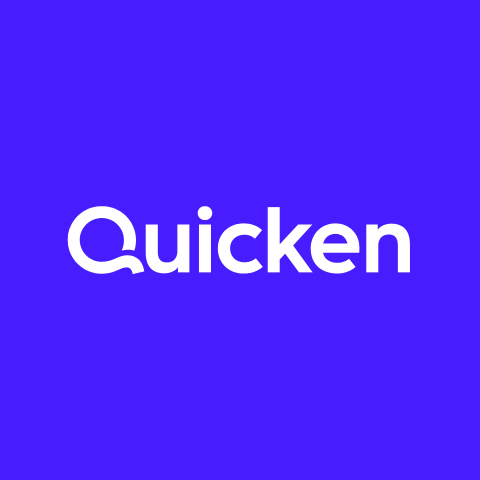
Quicken
Best for Personal Finance
- Ideal forPersonal finance, Small Businesses
- Core FunctionalityBudgeting, Banking, Investment Tracking
- Ease of UseUser-Friendly
About Quicken
Quicken is a versatile personal finance management application designed to help users create budgets, track expenses, and manage investments.
The software offers various features to suit different financial needs, including a specialized version called Simplifi, which focuses on easy financial tracking. Quicken is particularly well-suited for sole proprietors or small businesses without employees, offering powerful tools for expense and income tracking.
It also provides solutions for rental property management, though these are relatively limited. Quicken is a popular choice for those seeking an affordable and user-friendly personal finance tool.
How Quicken Is Different From QuickBooks
Personal Finance Tools: Quicken offers a wider range of tools for personal finance management, including budgeting, investment tracking, and retirement planning. QuickBooks on the other hand is aimed at broader business accounting tasks, including complex financial management and business reporting.
Cost: Quicken is generally less expensive with a focus on personal and business needs, offering various subscription tiers that cater to different levels of financial tracking. FreshBooks is typically higher priced, reflecting its comprehensive business features. It offers tiered pricing plans based on the number of billable clients and additional features, which can be costlier for users with extensive business needs.
Investment Tracking: Quicken excels in investment tracking, offering tools for portfolio management, capital gains monitoring, and detailed financial reports, ideal for individuals and families. FreshBooks, on the other hand, focuses on business accounting with features like invoicing and expense tracking, lacking robust investment tracking and detailed financial analysis capabilities.
Quicken Features
Monitor and analyze investment performance, including stocks, mutual funds, and retirement accounts.
Generate detailed tax reports and export data for tax preparation, helping to simplify tax filing.
View and manage all your finances with customizable dashboards for a personalized financial overview.
Sync bank transactions automatically, categorize expenses, and reconcile accounts efficiently.
Track and manage debts with tools to create and follow a plan for reducing and paying off loans.
Manage rental property finances, including tracking income, expenses, and generating financial reports.
Access financial data and manage accounts on the go with Quicken’s mobile app for iOS and Android.
Consolidate multiple bank, credit card, and investment accounts into a single view for better financial management.
Quicken Pros/Cons
Quicken Home & Business streamlines company income and expense tracking and aids landlords with rental property management.
Automatic expense categorization and customizable budgets ensure effective spending management.
Exceptional user experience with a handy dashboard
No trials or free plans. Especially since the product is highly recommended for small businesses.
Limited finance features related to businesses
Different features are offered for Windows and Mac users. For example, some features are missing on Mac.
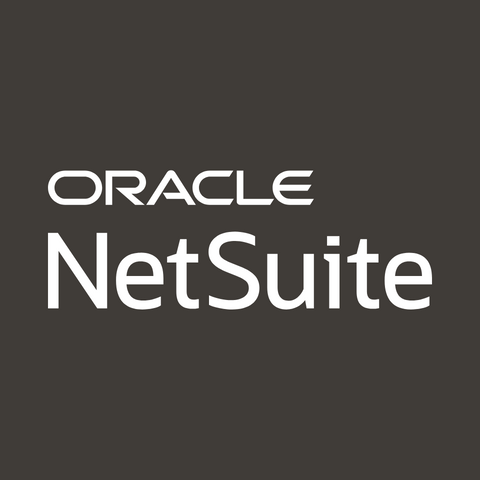
NetSuite
Best for Large Enterprise
- Ideal forLarge enterprises
- Core FunctionalityERP, Accounting, CRM
- Ease of UseComplex
About NetSuite
NetSuite ERP is a comprehensive cloud-based business management solution, now acquired by Oracle. It’s designed to streamline and integrate core business processes across various industries.
This all-in-one platform provides tools for financial management, inventory control, order processing, and customer relationship management. NetSuite supports global operations with capabilities for multi-currency, multi-language, and multi-tax compliance, making it ideal for both small businesses and large enterprises.
NetSuite features powerful analytics and reporting tools that provide real-time visibility into company operational and financial performance across all business functions.
How is NetSuite Different From QuickBooks?
Scale: NetSuite is designed for large enterprises and supports complex business processes with extensive features. QuickBooks is more suited to small and medium-sized businesses and does not offer the same level of enterprise functionality.
Integration: NetSuite provides a unified platform for various business processes including CRM, inventory, and ERP. QuickBooks focuses primarily on accounting, but integrates with other systems for a more modular approach.
Customization: NetSuite offers higher levels of customization and scalability, making it suitable for businesses with more specific or extensive requirements compared to QuickBooks.
NetSuite Features
Offers customizable account types, transactions, and reporting segments, providing flexibility and rich reporting functionality.
Provides a complete view of cash flows and liquidity to optimize financial decision-making.
Streamlines invoice delivery, payment processing, and collections to increase liquidity and reduce credit-to-cash cycle time.
Automates payable processes to save time, avoid late fees, and ensure compliance with internal policies.
Automates reconciliation for various accounts, including bank, credit card, and inventory, with centralized management.
Manages domestic and global taxes, handling multiple tax schedules and generating detailed reports in real-time.
Manages the entire lifecycle of assets, from acquisition to disposal, with integrated tracking and reporting.
Provides role-based dashboards and metrics for real-time tracking of financial performance and compliance.
NetSuite Pros/Cons
All-in-one ERP solution with advanced features for financial management, inventory, and CRM.
Scales easily with business growth and supports global operations with multi-currency and multi-language capabilities.
Real-time analytics and customizable dashboards enhance decision-making and efficiency.
High cost, making it less suitable for small businesses or startups.
Complex setup and implementation process, potentially requiring professional services.
An overkill for businesses that do not need extensive ERP functionalities.
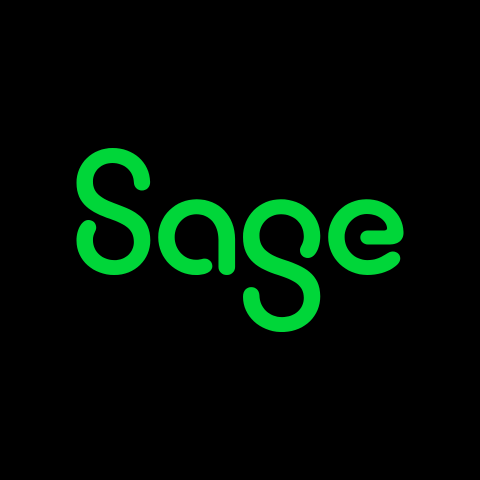
Sage 50
Best for Small Businesses
- Ideal forSmall Businesses
- Core FunctionalityInventory Management, Payroll, Job Costing
- Ease of UseModerate
About Sage 50
Sage 50 Accounting is a business accounting software designed to cater to both cloud-based and on-premise deployment needs. It excels in delivering comprehensive financial and inventory management tools, making it ideal for businesses seeking detailed and rapid reporting capabilities.
The platform supports a range of functionalities, from basic invoicing and expense management to advanced inventory tracking. However, its TestDrive preview has been critiqued for lacking user-friendliness, making it less accessible for those wanting to test the software before purchase.
Overall, Sage 50 is well-suited for businesses with significant reporting and inventory needs.
How Sage 50 Is Different From QuickBooks
Advanced features: Sage 50 often offers a more comprehensive feature set, particularly in areas like inventory management, job costing, and advanced reporting. It caters to businesses with complex financial needs. QuickBooks offers a strong foundation of accounting features but tends to focus on smaller to medium-sized businesses with less complex requirements.
Industry-specific: Sage 50 offers industry-specific solutions tailored to meet the unique needs of various sectors, providing more specialized features and functionality. While QuickBooks is adaptable, it may not offer the same level of industry-specific customization and might require additional third-party integrations.
Customer Service: Sage is well-regarded for its customer service, offering extensive resources like community forums, a detailed knowledge base, live Q&As, and both phone and online support. In contrast, Intuit, the parent company of QuickBooks, has a poor reputation for customer service, with users often facing long wait times and difficulties reaching live agents.
Sage 50 Features
Keeps users updated with the latest legislation and tax changes to ensure financial compliance.
Provides tailored reports to track key metrics and manage finances on your terms.
Ensures high-level security with automatic backups to protect sensitive financial information.
Offers accurate, real-time insights into your financial status to improve decision-making and profitability.
Manages and tracks inventory with advanced features for better control and efficiency.
Adapts to the needs of freelancers, small businesses, and growing companies, with options to upgrade as needed.
Sage 50 Pros/Cons
Offers a wide range of tools for accounting, inventory, payroll, and more.
Easily integrates with other business tools and systems.
Available for various industries, offering tailored features.
Sage 50 can be expensive for small businesses — starts at $60.08/user/month
Additional fee for receipt capture and payroll processing
Setup and configuration can be complex and time-consuming and the overall interface is less intuitive.
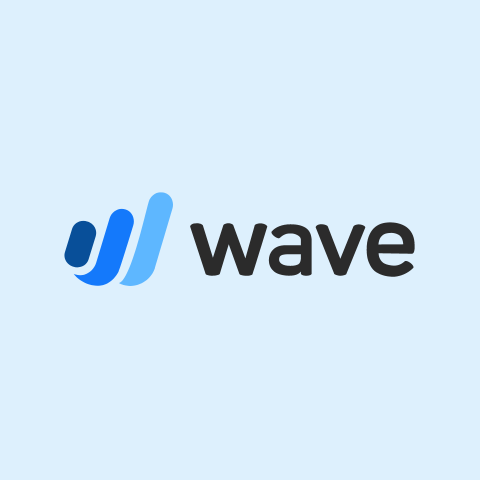
Wave Accounting
Free Plan is Sufficient for Beginners
- Ideal forSmall businesses, startups
- Core FunctionalityInvoicing, Expenses, Accounting
- Ease of UseUser-Friendly
About Wave Accounting
Wave Accounting packs a set of powerful financial management tools at a reasonable cost. Wave offers essential features like invoicing and expense tracking without any subscription fees.
It simplifies financial tasks, even for those with minimal accounting knowledge. Wave also connects with your bank and payment systems, helping you track income & expenses, monitor cash flow, and stay organized for tax season.
Despite its free model, Wave does offer optional paid services for additional functionalities like payroll and advanced support, making it a versatile choice for various business needs.
How Is Wave Accounting Different From QuickBooks?
Cost: Wave Accounting is free for most key features — create unlimited invoices & bills, accept online payments, and manage cash flow & customers all in one dashboard, making it an attractive option for startups and small businesses. QuickBooks, on the other hand, requires a subscription fee and the cost will add up quickly.
User Interface: Wave is designed to be highly accessible with a user-friendly interface suitable for users with minimal accounting experience. QuickBooks, while user-friendly, can be more complex due to its extensive feature set.
Customer Support: Wave is generally known for its responsive and helpful customer support, with a focus on user satisfaction. QuickBooks offers customer support, but might have longer wait times or less personalized assistance during peak periods.
Wave Accounting Features
Automatically import and categorize expenses to track spending and manage your budget efficiently.
Capture and upload receipts using the mobile app, automatically syncing them with your accounting records.
Handle payroll for employees with automated calculations, tax filings, and direct deposits (available in select regions).
Connect your bank accounts to Wave to reconcile transactions and ensure accurate financial records.
Access essential financial reports like profit and loss statements, balance sheets, and cash flow reports for better insights.
Manage transactions in multiple currencies, ideal for businesses dealing with international clients.
Automatically calculate sales tax and generate tax reports to simplify compliance and filing processes.
Connect with Wave Advisors for personalized support and expert advice on financial management and tax planning.
Wave Accounting Pros/Cons
Free forever plan with all basic accounting features
Unlimited invoicing with customizable templates and payment terms.
Unlimited number of users
No start-up or monthly fees
Collecting online payments is “pay-per-use”
No built-in third-party app integrations.
Customer service through chat or email only.
No native time-tracking feature
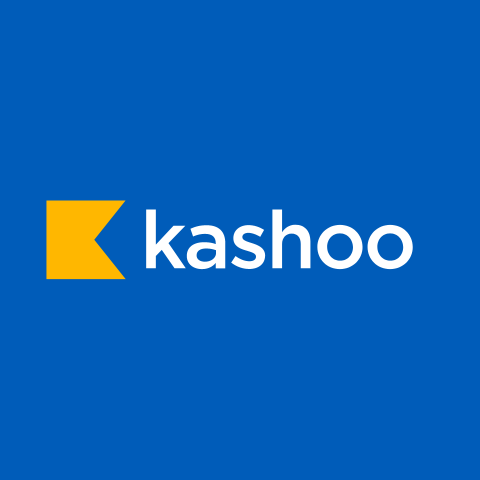
Kashoo
Best to Automate Accounting Tasks
- Ideal forSmall businesses, freelancers
- Core FunctionalityInvoicing, Expenses, Accounting
- Ease of UseUser-Friendly
About Kashoo
Kashoo calls itself “The World’s Simplest Accounting Software” and is designed for a wide range of users, from consultants and sole proprietors to freelancers. Kashoo aims to simplify financial management without overwhelming users with complex features.
Kashoo provides essential tools for invoicing, expense tracking, filing taxes, and basic financial reporting. This makes it an attractive option for businesses that do not require advanced accounting capabilities.
Kashoo offers 2 variants: Trulysmall accounting and Kashoo. Trulysmall offers automated & easy accounting for growing small businesses, whereas Kashoo works as advanced & personalized accounting software for established businesses.
How Kashoo Is Different From QuickBooks
Pricing: Kashoo offers a straightforward pricing model with no hidden fees, making it an affordable option for startups and small businesses. In contrast, QuickBooks, especially its more advanced versions, can become expensive with additional costs for features and integrations, making Kashoo more cost-effective for smaller operations.
Invoicing and Payments: Kashoo allows users to create and send invoices quickly and integrates seamlessly with payment processors. While QuickBooks also offers invoicing and payment features, Kashoo is more appealing to users looking for simple billing processes.
Simplicity in Setup and Use: Kashoo allows users to set up and get started quickly, without needing extensive tutorials or training. This simplicity can be particularly beneficial for sole proprietors or small business owners who may not have an accounting background. In contrast, QuickBooks requires a steeper learning curve to fully utilize its complex features.
Kashoo Features
Create and send professional invoices with customizable templates, automated reminders, and online payment options.
Easily track and categorize expenses, with the ability to upload and attach receipts directly to transactions.
Automatically import and reconcile bank transactions, ensuring accuracy and reducing manual data entry.
Handle transactions in multiple currencies, accommodating international clients and vendors.
Kashoo maximizes tax deductions with automated data entry, ML-powered categorization, and IRS & CRA alignment.
Manage your accounting tasks on the go with Kashoo’s mobile app, allowing you to invoice, track expenses, and more.
Provide clients with access to their invoices and payment history through a secure online portal.
View real-time financial data and insights with customizable dashboards that suit your business needs.
Kashoo Pros/Cons
The product is not expensive and also comes with a 14-day free trial.
Unlimited number of users
Print traditional paper paychecks with a step-by-step walkthrough
Provides a comprehensive set of modules at an affordable price, with features capable of handling all tasks independently.
Payroll functionality is basic and not suitable for businesses with complex payroll requirements.
Lacks advanced inventory management features and POS integration
The reporting capabilities in Kashoo are relatively basic, potentially falling short for businesses that require detailed financial analysis and custom reporting options.
Comparing Top QuickBooks Alternatives
Here’s a quick comparison table to further filter your decision-making. We’ve compared QuickBooks with other alternatives based on core functionalities, pricing, and suitability for different business needs.
QuickBooks Alternatives | Starting Price | Ideal For | Bookkeeping | Core Accounting | Inventory Management | Explore |
|---|---|---|---|---|---|---|
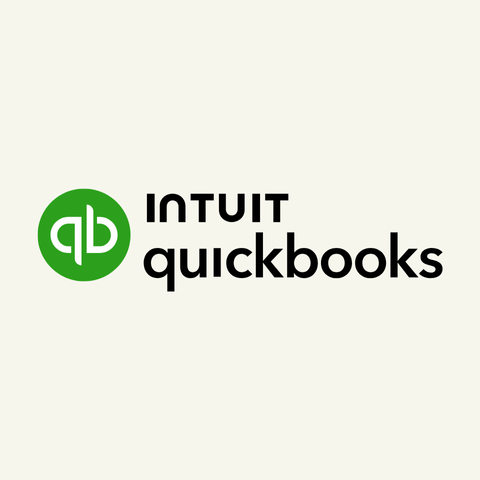 QuickBooks | $17.50/month | SMBs | ✅ | ✅ | ✅ | |
 Zoho Books | $15/month | Small businesses, freelancers | ✅ | ✅ | ✅ | |
 FreshBooks | $7.60/month | Freelancers, small businesses | ✅ | ✅ | ✅ | |
 Xero | $20/month | SMBs | ✅ | ✅ | ✅ | |
 Quicken | $2.99/month | Personal finance, small businesses | ✅ | ❌ | ❌ | |
 NetSuite | [Custom] | Large enterprises | ✅ | ✅ | ✅ | |
 Sage 50 | $60.08/month | SMBs | ✅ | ✅ | ✅ | |
 Wave Accounting | $16/month | Small businesses, startups | ✅ | ✅ | ❌ | |
 Kashoo | $216/year | Small businesses, freelancers | ✅ | ✅ | ❌ |
Why Consider QuickBooks Alternatives?
QuickBooks online or desktop is widely recognized for its robust features and extensive user base, but it may not be the best fit for every business. Here are some reasons why you might consider alternatives.
- Cost: QuickBooks can be relatively expensive, especially for small businesses or freelancers. Alternatives like Wave Accounting offer core functionalities for free, while Zoho Books provides comprehensive features at a more affordable price. This cost-effectiveness can be crucial for businesses with limited budgets.
- Complexity: QuickBooks can seem a bit daunting, especially for users with limited accounting or bookkeeping experience, or for businesses with more complex needs. Users may require professional help or rely on online resources for assistance. However, there are beginner-friendly alternatives available, such as FreshBooks and Wave Accounting. Kashoo is another great option that emphasizes simplicity and does not require professional assistance.
- Overwhelming Features: QuickBooks can have a feature bloat issue. While it offers a wide range of features, this can overwhelm even experienced users. The extensive options and settings may lead to a steep learning curve and difficulty in finding specific tools or features quickly. This complexity can make navigation and task completion more challenging, particularly for users who need only a subset of the available functionalities.
- Lack of Features: While comprehensive, QuickBooks can fall short in specific areas. For instance, it lacks native integration with Stripe, forcing businesses to rely on third-party workarounds. QuickBooks also doesn’t offer advanced inventory management features such as lot tracking, barcode scanning, and detailed cost analysis. Additionally, there are some shortcomings in its reporting capabilities, like limited customization options and difficulty generating in-depth financial analyses.
- Industry-specific Needs: QuickBooks may fall short of industry-specific needs due to its general-purpose design. For example, in manufacturing, it lacks advanced production planning and detailed job costing. In construction, it doesn’t handle complex project-based accounting or contract billing well. Retail lacks advanced POS integration and detailed inventory management. Nonprofits may find their fund accounting and donation tracking insufficient. And healthcare industries require more specialized features for project management and compliance.
- Unavailability in Certain Countries: QuickBooks may not be available or fully functional in all countries. For instance, QuickBooks announced that their products and services for accountancy and small business customers would no longer be available in India after 31 January 2023. To check the availability of QuickBooks in specific regions, please contact QuickBooks customer support for the most up-to-date information.
How to Choose the Right QuickBooks Alternative
Here are some factors you should carefully evaluate to make sure the alternative aligns with your specific business needs:
- Business Size: The scale of your business will influence your choice of accounting software. Larger enterprises will need robust features like multi-user access, detailed reporting, and enhanced security measures to manage complex financial operations and multiple departments. On the other hand, smaller businesses will benefit more from cost-effective solutions that prioritize simplicity and essential features.
- Industry-Specific Needs: Every industry needs a few niche features. For example, construction companies typically need job costing and project management features to track expenses and revenues by project. Retail businesses, on the other hand, might prioritize inventory management and point-of-sale (POS) integration to streamline their operations. Make sure to choose a QuickBooks alternative that works best for your industry.
- Budget: Budget considerations are crucial when choosing an accounting solution. Software options range from free, basic tools to high-end packages with extensive features and capabilities. It’s important to evaluate not only the upfront costs but also additional expenses, such as fees for extra features, user licenses, and ongoing support services. Compare plans of different products thoroughly to make the best use of your budget. You may use budgeting apps to perform the calculation.
- Desired Features: Most users will need core functionalities like invoicing, expense tracking, and payroll. However, your specific needs will also depend on your industry, business size, and operational complexity. For instance, retailers might prioritize inventory management and point-of-sale integration, while service-based businesses may focus on time tracking and project management.
- Ease of Use: The usability of accounting software is vital. Especially for businesses with teams that have different levels of technical expertise. Therefore, invest in a solution with an intuitive interface, easy navigation, and comprehensive customer support to reduce the learning curve and improve productivity.
- Integration Capabilities: Modern businesses operate in a complex ecosystem of software tools. That’s why effective accounting requires seamless integration with other systems like CRM, e-commerce platforms, and payroll software. This interconnectivity streamlines workflows, prevents data discrepancies, and saves valuable time. By choosing software that integrates effortlessly, businesses can create a cohesive digital environment that supports growth and efficiency.
Is There a Free Alternative to QuickBooks?
Yes, here are some of the best free accounting software.
- Wave Accounting: Wave offers a comprehensive suite of features, including invoicing, receipt scanning, and financial reporting, all at zero cost. This makes it ideal for small businesses and freelancers seeking a user-friendly platform to manage their finances. Wave’s free plan is supported by optional paid services like payroll and payment processing, allowing you to scale up as your business grows.
- Manager.io: This free accounting software stands out with its offline functionality. It’s a full-fledged solution you can install on your desktop computer, offering features like invoicing, expense tracking, and financial reports. Manager.io is a great choice for businesses that prefer not to rely solely on cloud services or have limited internet access.
- NCH Express Accounts: The free version of NCH Express Accounts caters to small businesses by providing basic accounting tools to manage invoices, track payments, and generate reports. It even supports multi-user access, which can be helpful for small teams. While the free version has its limitations compared to paid plans, it offers the essentials for managing your basic accounting needs.
Can I Migrate My Data From QuickBooks to These Alternatives?
Yes. Migrating data from QuickBooks to other accounting software alternatives is possible. Most alternative platforms provide tools or services to assist with data migration, though the ease and extent of this process can vary.
Is QuickBooks Good for Inventory Management?
No. QuickBooks offers a very basic inventory management software for small businesses. It allows users to track quantities, generate purchase orders, and create reports. However, for complex inventory management with advanced features, consider alternatives like Zero, Zoho Books, Sage 50, or NetSuite.
How To Find the Right Accounting Software for Your Business
Finding the best accounting software involves identifying essential features you rely on to run your business. Follow this checklist:
- Ensure the provider offers efficient and reliable customer service.
- Consider if built-in payroll services or integration are necessary.
- See if you’ll need bookkeeping or a general ledger for your data.
- Evaluate the necessity of time tracking, timesheets, and HR management features.
- Decide if payroll and tax preparation tools are important for your operations.
- Assess whether you’ll benefit from budgeting, estimates, or forecasting capabilities.
- See if advanced database management, customizable reports, and analytics will be useful or too complex.
- Check if your budget aligns with software costs, or if a free solution is preferable.
- Explore any additional features that could enhance your experience.
Can I Do Bookkeeping Without QuickBooks?
Yes, you can do bookkeeping without QuickBooks. There are numerous other accounting software options and customizable balance sheet templates available that offer a range of features suitable for various business needs.
More on Accounting
-
 EditorUsha, the editor-in-chief of Geekflare, is a tech-savvy and experienced marketer with a Master’s degree in Computer Applications. She has over a decade of experience in the tech industry, starting as a software engineer and then moving into digital marketing and team management.
EditorUsha, the editor-in-chief of Geekflare, is a tech-savvy and experienced marketer with a Master’s degree in Computer Applications. She has over a decade of experience in the tech industry, starting as a software engineer and then moving into digital marketing and team management.


